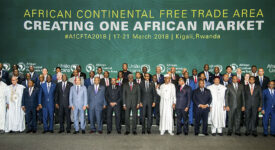The European Commission has just paved the way towards the EU-Vietnam trade and investment agreements that will eventually remove all tariffs on goods between both sides. The agreements will also provide a firm legal framework for a binding commitment to sustainable development including environmental considerations, respect for human rights and the explicit reference to the Paris Agreement to fight climate change.
Commission President Jean-Claude Juncker described the deals as “exemplary” as they
“bring unprecedented advantages and benefits for European and Vietnamese companies, workers and consumers” by taking into account the economic differences between the two sides. They promise a rules- and values-based trade policy with strong and clear commitments on human rights and development. Commissioner for Trade Cecilia Malmström added that Vietnam had massive potential for EU exporters and investors to do business. It is one of the fastest-growing economies in Southeast Asia with a market of 95 million consumers, a young workforce and an emerging middle class.
The trade agreement will remove 99% of all customs on goods and Vietnam will remove around 95% of import duties on EU exports from the agreement’s entry into force. All provisions will address non-tariff barriers and take into account that Vietnam is a developing country so the remainder of duties will be gradually eliminated. Through the agreement, European companies will be able to participate in bids for procurement with domestic businesses. The trade deal will also ensure that economic growth and sustainable development are going hand in hand.
Vietnam is the EU’s second largest trading partner in the Association of Southeast Asian Nations (ASEAN) after Singapore. The mutual trade in goods is worth €47.6 billion a year and €3.6 billion in services. Yet, EU investment in the country is still modest – standing at €8.3 billion in 2016.







